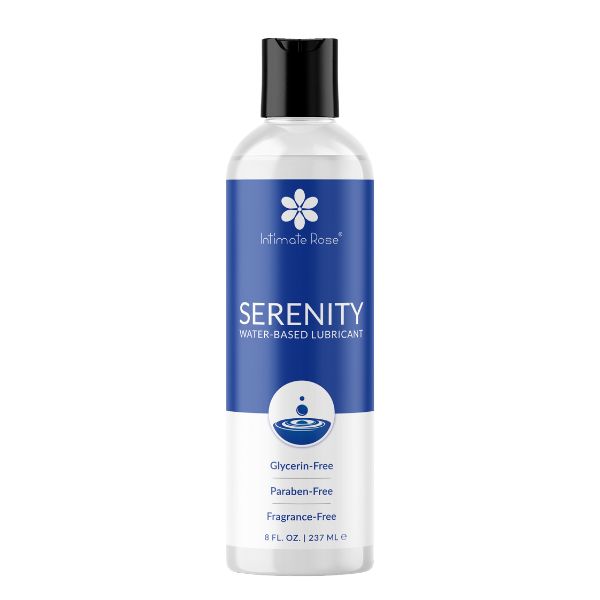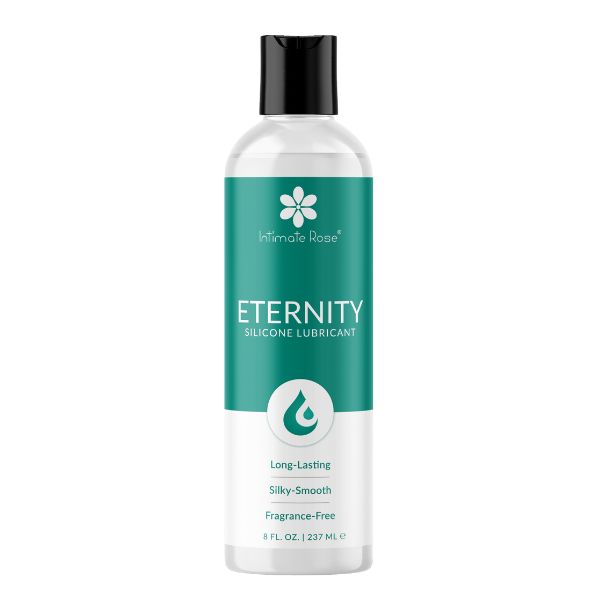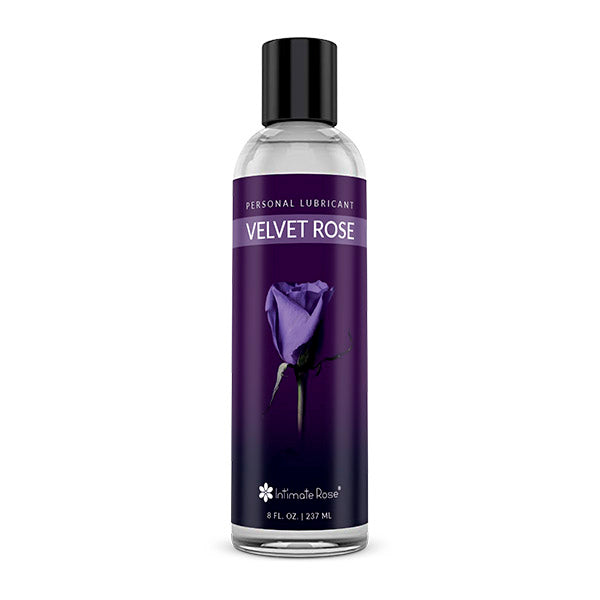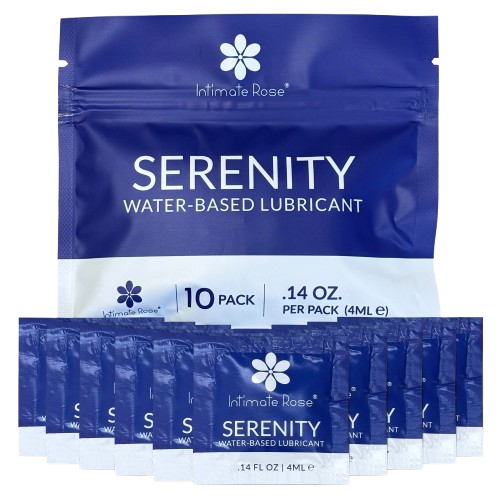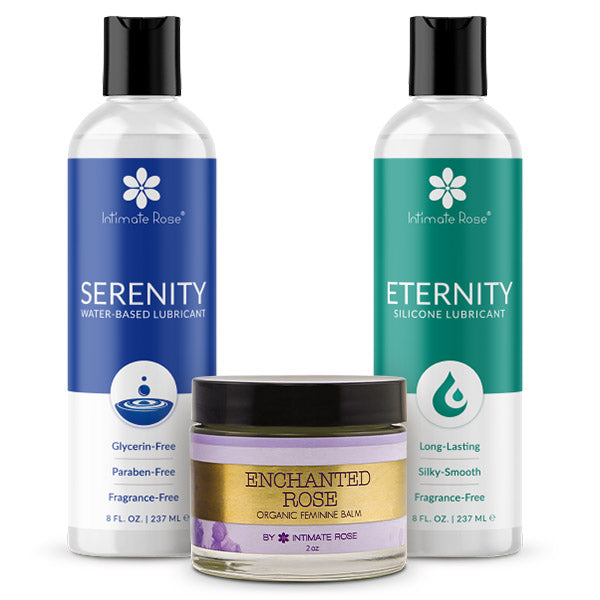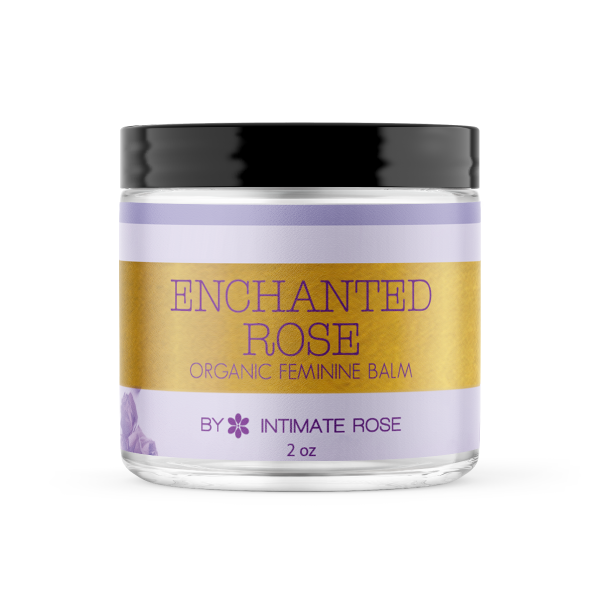During perimenopause and after menopause vaginal dryness is common in over 50% of women. Normally linked to hormone fluctuations, vaginal dryness can result in skin irritation, itchiness, pain during sex, and an overall lowered quality of life, when left untreated. Thankfully, several treatment options, both medical and natural, exist to treat vaginal dryness in menopause.
Join us as we discuss why vaginal dryness in menopause happens, the additional symptoms it can cause, how to know if estrogen therapy is safe for you, and the natural alternatives providing relief from vaginal dryness without any harmful side effects.
Vaginal Dryness in Menopause: Why Does it Happen?
Vaginal dryness, also known as vaginal atrophy, atrophic vaginitis, and genitourinary syndrome of menopause (GSM) is described as feeling dry, tight, or less lubricated in the vagina. It can happen when the ovaries begin to produce fewer hormones like estrogen and progesterone during perimenopause. Alternatively, it can occur in postmenopause when menstruation has ceased and lowered hormone levels have settled.
Vaginal Dryness in Perimenopause
Typically starting in the early to mid-40s, and lasting anywhere from 4-8 years, perimenopause is known as the transition into menopause. During this stage, hormones like estrogen, progesterone, and testosterone incrementally decrease in preparation for the end of the reproductive phase of life.
Estrogen, in addition to supporting the reproductive system and various other body systems, also helps to maintain healthy and flexible vaginal walls. When estrogen levels begin to drop during perimenopause, the vaginal walls can become thinner, drier, less elastic, and more prone to irritation. Low estrogen levels also result in a decreased production of natural lubrication in the vagina.
Vaginal Dryness Postmenopause
Menopause is reached when menstruation has not occurred for 12 consecutive months and afterward, women are medically referred to as postmenopausal. At this stage, hormones have typically dropped as low as they will go and settle into a resting state. For some women, even those who have taken HRT during perimenopause, vaginal dryness can worsen, or occur for the first time, postmenopause.
That being said, both medical and natural treatments exist to ease the discomfort and help women maintain an enjoyable sex life as they age.
Can Vaginal Dryness During Menopause Cause Other Symptoms?
Yes, vaginal dryness can lead to several additional symptoms if left untreated. When low estrogen levels result in thinner, drier, and less flexible vaginal walls, itching and increased genital irritation and sensitivity can also occur. In severe cases, women endure discomfort all day every day, eventually influencing what clothes they wear, how long they sit, and what activities they can and cannot do.
Estrogen also supports the vaginal microbiome by encouraging the presence of friendly bacteria to maintain a healthy vaginal pH and prevent infection. Therefore, when estrogen levels drop and vaginal dryness occurs, menopausal women are often more susceptible to urinary tract infections and yeast infections.
Due to the lack of natural lubrication, women with vaginal dryness in menopause can also feel an uncomfortable tightness or pain during sex (dyspareunia). This is normally the result of increased friction and the heightened occurrence of micro tears on the vaginal walls.
The results of several surveys showed that up to 25% of women experiencing untreated vaginal dryness during menopause reported that it affected their sleep, moods, and overall quality of life.
How to Treat Vaginal Dryness and Pain During Sex in Menopause?
Typically caused by low estrogen levels, vaginal dryness, itching, irritation, and pain during sex are common during perimenopause, menopause, and postmenopause.
Although many women find it too embarrassing to discuss with their partner or healthcare provider, this common symptom of menopause can be relieved with either medical or natural treatments, both of which are outlined in detail below.
When it comes to relieving vaginal dryness during or after menopause, it’s important to remember that what may be effective for one woman might not work for others. It’s therefore important to keep an open mind and try different treatment options to find what suits you.
Medical Treatment for Vaginal Dryness
Topical Estrogen
Used as a cream, pessary, or ring, topical estrogen specifically targets the vaginal tissues by replacing the estrogen no longer being made by the ovaries. Available via prescription, topical estrogen helps to revive the vaginal tissues, thicken the vaginal walls, and increase natural lubrication to relieve vaginal dryness in menopause.
Even women who already take hormone therapy to treat other menopause symptoms are sometimes prescribed topical estrogen (known as estradiol or estoril) in small doses to treat vaginal dryness directly.
Selective estrogen receptor modulators (SERMs)
Known to mimic the effects of estrogen, SERMs stimulate estrogen receptors and trick the body into behaving as if estrogen is present when it’s not. In addition to easing other menopause symptoms, SERMs improve vaginal lubrication, maintain healthy pH levels, and thicken vaginal walls.
Dehydroepiandosterone (DHEA)
DHEA is a hormone naturally produced by the adrenal glands that helps produce other hormones like estrogen and testosterone. It’s another hormone that gradually declines with age and is sometimes prescribed as a suppository, cream, or gel, to ease vaginal dryness and pain during sex.
DHEA should not be taken with hormone therapy or topical estrogen due to its ability to encourage the production of estrogen. It can also increase the effects of androgens (male hormones), which can cause acne, hair loss, and extra facial hair growth during menopause, so it’s important to check with a healthcare provider if it’s right for you.
Is Estrogen Safe for Every Woman in Menopause?
Hormone therapy and topical estrogen are believed to be safe for most women, however, they can cause unwanted side effects and increase the risk of cancer in some. In particular, women who have heart conditions, have had cancer, or have a family history of breast cancer, uterine cancer, heart disease, or blood clots are sometimes advised to refrain from using hormone therapy involving estrogen.
Hormonal and Non Hormonal Menopause Relief
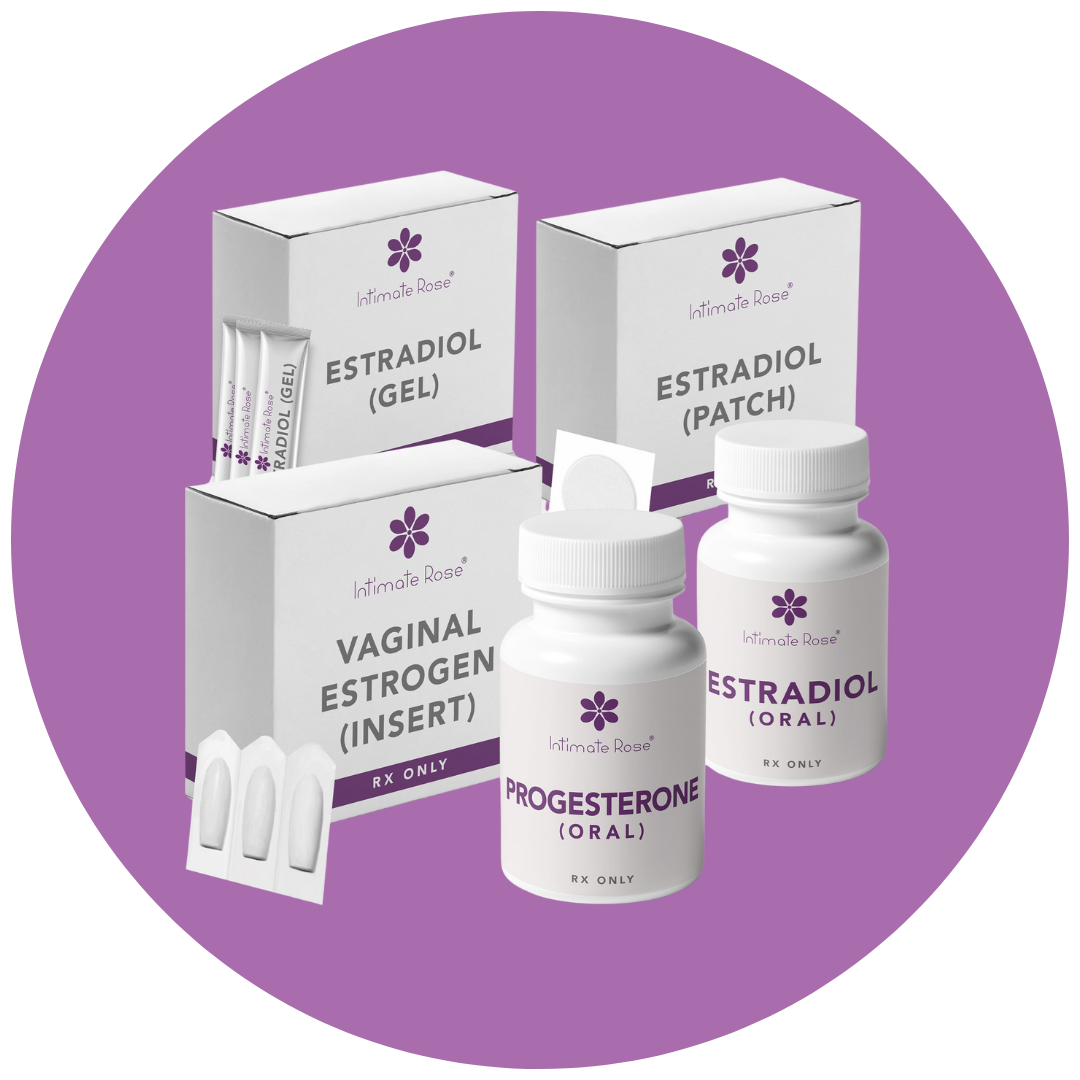
Final Thoughts
Vaginal dryness is common during and after menopause but often too embarrassing for women to speak about. However, the truth is, that it can be relieved with either medical or natural treatments depending on whether estrogen therapy is safe for you.
Combining a daily intake of phytoestrogen supplements like Vitex, with an organic vaginal moisturizer to rehydrate the skin, and a water-based lubricant to relieve dryness during sex is considered the safest and most effective long-term approach to relieving vaginal dryness during menopause.
This content is intended solely for informational purposes and should not be considered medical advice. It is not meant to replace the guidance of a qualified healthcare professional. Be sure to consult with your doctor to discuss the potential risks and benefits of any treatment options.
References
National Library of Medicine -Vulvar and vaginal atrophy in postmenopausal women: findings from the REVIVE survey - https://pubmed.ncbi.nlm.nih.gov/23679050/
American Journal of Obstetrics and Gynecology - Genitourinary syndrome of menopause: an overview of clinical manifestations, pathophysiology, etiology, evaluation, and management - https://www.ajog.org/article/S0002-9378%2816%2930518-X/fulltext
National Cancer Institute - Menopausal Hormone Therapy and Cancer - https://www.cancer.gov/about-cancer/causes-prevention/risk/hormones/mht-fact-sheet
Mayo Clinic – DHEA - https://www.mayoclinic.org/drugs-supplements-dhea/art-20364199
National Library of Medicine - Efficacy of phytoestrogens for menopausal symptoms: a meta-analysis and systematic review - https://www.ncbi.nlm.nih.gov/pmc/articles/PMC4389700/
National Library of Medicine - Treating vulvovaginal atrophy/genitourinary syndrome of menopause: how important is vaginal lubricant and moisturizer composition? – https://www.ncbi.nlm.nih.gov/pmc/articles/PMC4819835/

Get your personalized HRT plan!




